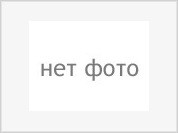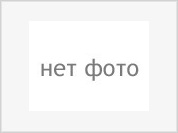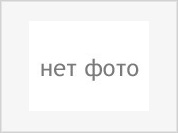Russian Or Cosmopolitan?
 For Leo Tolstoy's 175th Birth Anniversary
For Leo Tolstoy's 175th Birth Anniversary
The world will celebrate Leo Tolstoy's 175th birth anniversary, September 9.
The Russian thinker and author is on the Top Ten among the wisest of the human race on a par with Confucius, Plato, Socrates, Montaigne or Emmanuel Kant. Minds of such grandeur appear once in a thousand years.
Tolstoy is part and parcel of everyday reading since childhood, though a greater part of his works were banned in Russia during his lifetime, and after, to make him practically unknown in his native land. He is outside the mainstream even now that the slant of official Russian ideology toward Christianity is ever more pronounced. But 21st century people will turn back to Tolstoy more and more often.
Many say Leo Tolstoy was a cosmopolitan outside national traditions. That opinion is either a blatant, deliberate lie or comes from utter misunderstanding of him. In fact, Tolstoy was every inch a Russian, one whose ethnic awareness was profound enough to attain universal world-perceptions and so join the global heritage.
Tolstoy drew Christian philosophy down to earth from the forbidding aloofness of the Church dogma, and put it into the heart of every man and woman. That was, to my mind, his greatest achievement. To Tolstoy, Christ was an unattainable ideal of loftiness unsurpassed, and unsurpassable. Tolstoy denied the Godhead of Christ. Therein was the principal difference between him and the Church. To Tolstoy, Christ was Man imbued and penetrated by divine Light. Never in His lifetime did He betray His ideals and convictions. That was what made Christ unique. Aware that whatever violence breeds violence alone, and whatever evil produces nothing but evil that corrupts the soul, He shunned violence and accepted torment. When, during Christ's arrest, Peter rose in arms to defend Him, He told the disciple to put his sword away.
Tolstoy said the truth of the world and of the human soul. Yet it is human to shun the truth. He came out against the institutionalised Church as it assumed the duty of determining human destinies, so the clergy hates him. Tolstoy regarded man as part of God. The divine in him makes man settle his fate on his own. To entrust one's life and soul to another, giving up one's own reason, means to be a fanatic. Such was the Tolstoian doctrine. Lefts and Rights, the lay powers-that-be, and the clergy - all must see, now or never, that Leo Tolstoy's ideas contain a wisdom we all need as the air we breathe.
It is hard to live on Tolstoian precepts. It takes tremendous spiritual power and stamina. It is a predatory and hypocritical world we live in, a world of bloodshed, war and revolution. Dependent and vulnerable, man becomes aware of his inferior status and, submissive, curries favour with the spirit of his time, with bureaucrats and the government at the price of his dignity. Loath to do that, Tolstoy made his choice at the end of his life to give up his household for the Optin Monastery.
One may be dungeoned, incarcerated in a monastery, even put to death - yet there is no power to rob man of his faith, principles and spiritual essence. Such was Tolstoy's conviction.
Apparently inviolable, the Soviet Union fell in no time. Other empires survive to this day, and appear just as formidable, but the day will come when they will lie in ruins as the Roman Empire-evil cannot persist for long. Life outside us may be too strong for us to change it, yet we have power over ourselves. Everyone is granted an instant of free choice. We are free to choose whether to commit an evil doing or abstain from it. That is Leo Tolstoy's basic premise.
Our vital free choice demands spiritual culture. The soul needs permanent progress. One ought to rise the ladder of life, step after step, and become cleaner. The one who has a moral core within will retain oneself even in the most trying and tragic situation. That was one of Tolstoy's greatest discoveries. He was the world's most profound in his analyses of the dialectic of the human soul and essence.
Tolstoy changed the paradigm of human contacts beyond recognition as he posed the question of questions-how to avoid retaliation to evil with evil, how to repulse it with kindness. That is, all too often, impossible in this harsh reality, yet everyone must know in his heart of hearts that evil is inadmissible. The Christian way starts with a tiny step-do not shout back or throw an insult in reply to insult. Do not torment yourself with pride and envy.
This is a purposeful world. There is reason in it, and we are part of that reason. We appear in the world on a mission. The memory of past generations lies dormant within us. We are the link to connect them with the generations to come. Once we realise that, we grasp the meaning of life, and become aware of personal immortality. That was how Tolstoy saw man in the universe.
Leo Tolstoy's Caucasian tales are of vital importance now that, day in, day out, media outlets bring us news of cruelty and murder in the war-ridden Caucasus. Instead of instilling Chechen phobia in Russians, it would be wise to help the Russian people-in-the-street with a personal discovery of sublime Caucasian traditions and inimitable culture. Tolstoy loved the Caucasus and never made a difference in his treatment of Russians and the indigenous people. Chechens paid him in kind. A Tolstoy museum stands unscathed and welcomes visitors in the rebellious Schelkovsky district.
Russians and Chechens share pain and bereavement - both lost many sons and daughters.
September 9, the Khamovniki, Tolstoy's memorial estate in Moscow, is hosting a global premiere of Hadji Murat, opera by Daghestani composer Shirvani Chalayev on Leo Tolstoy's novella of the same name. Dedicated to the memory of all victims of all Caucasian wars, the performance will demonstrate irrepressible mutual sympathies of Russians and Caucasians, and their cultural links.
There is another vital theme on which Tolstoy's opinions remain topical. The Russian community has been for some time hotly debating death penalty. "We ought not to dearly value every human life but put it high above any price," said Tolstoy. There was a time in this country when it was striving to build a brave new world at the price of unprecedented bloodshed - an ignominious, criminal and godless endeavour. No progress can be made at the price of blood, says Leo Tolstoy.
Goodness alone offers a way out of a crisis. Tolstoy was drawing on the psychology of the ordinary human, who wants to love and be loved, bring up kids and be happy. There is an energy of good in those simple ideals, an energy immeasurably more powerful than evil. The human race is either to understand and follow Leo Tolstoy or to extinguish itself. There is no third way.
Vitali Remizov, Director, Leo Tolstoy State Museum
Subscribe to Pravda.Ru Telegram channel, Facebook, RSS!





